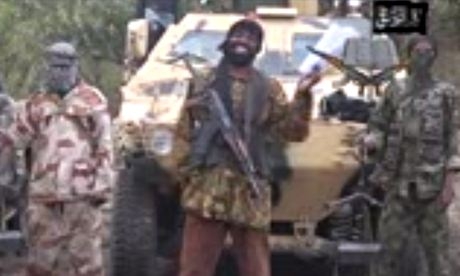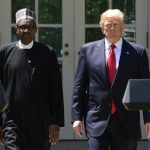Militant leader Abubakar Shekau sent a video obtained by the AFP news agency, in which he said for the first time that his group had taken the girls.
About 230 girls are still believed to be missing, prompting widespread criticism of the Nigerian government.
The Boko Haram insurgency has left thousands dead since 2009.
The girls were taken from their boarding school in Chibok, in the northern state of Borno, on the night of 14 April.

Mothers of the missing girls have been speaking to the BBC
Boko Haram, which means "Western education is forbidden", has attacked numerous educational institutions in northern Nigeria.
'God instructed me'
In the video, Abubakar Shekau said the girls should not have been in school in the first place, but rather should get married.
"God instructed me to sell them, they are his properties and I will carry out his instructions," he said.
However, BBC Hausa Service editor Mansur Liman points out that the Boko Haram leader did not state the number of girls abducted, nor where they were taken or are now.
Analysis
The Boko Haram video in which the group's leader, Abubakar Shekau, claims responsibility for the abduction of the schoolgirls confirms what has been suspected all along.
It also backs up what local people have been reporting – that the girls have been forcefully married off or sold as slaves to members of the group.
This, in turn, has further pushed up the level of anxiety, particularly among parents and relatives who fear for the safety of the girls, according to Fatima Gana, the founder of a charitable organisation that helps victims of the dreaded group.
However, the video may not change the approach of the government and security agencies to the problem. The security forces say they are making use of all information that might lead to the rescue of the girls.
At a briefing with journalists on Sunday night, President Goodluck Jonathan reassured Nigerians that the government was doing everything possible.
But a Chibok elder, Pogu Bitrus, dismissed the president's assurances as mere talk, saying the community has no confidence that the government and its security apparatus will do now what they have not done in the last three weeks – take some practical measures to secure the release of the girls.
It is a sentiment shared by many Nigerians.
Assurances from President Goodluck Jonathan have done little to convince Nigerians of the government's commitment to freeing the girls, says our correspondent.
The Associated Press news agency says it is unclear whether the video was made before or after reports last week that some of the girls had been forced to marry their abductors, who paid a nominal bride price of $12 (£9).
Others are reported to have been taken across borders into Cameroon and Chad.
The girls were in their final year of school, most of them aged 16 to 18.
The BBC Hausa Service has received reports of a gun battle on the Nigeria-Cameroon border, and houses being burnt down by individuals suspected to be members of Boko Haram.
No further details are available.
Protest organiser detained
Meanwhile, a woman who helped organise protests over the abduction was detained and later released.
Naomi Mutah was taken to a police station after a meeting called by First Lady Patience Jonathan.
Mrs Jonathan reportedly felt slighted that the girls' mothers had sent Ms Mutah to the meeting instead of going themselves.
Mrs Jonathan is seen as a politically powerful figure in Nigeria but has no constitutional power to order arrests.
Ms Mutah, a representative of the Chibok community, organised a protest last week outside parliament in Abuja.

President Goodluck Jonathan: "Wherever these girls are, we will surely get them out"
Pogo Bitrus, another Chibok leader, described Ms Mutah's detention as "insensitive", telling the BBC he hoped Mrs Jonathan would soon "realise her mistake".
The AP news agency quotes another community leader, Saratu Angus Ndirpaya, as saying that Mrs Jonathan accused the activists of fabricating the abductions and supporting Boko Haram.
In a TV broadcast on Sunday, his first comment on the abductions, President Jonathan said he did not know where the girls were but everything was being done to find them.





